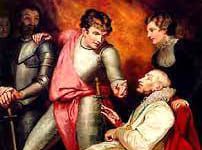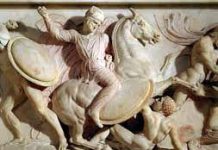Elizabethan Theater
Elizabethan Theater: A Theatrical Renaissance
Introduction
The Elizabethan era (1558-1603) is renowned for its vibrant cultural scene, and at the heart of this cultural renaissance was the flourishing of Elizabethan theater. This period witnessed an explosion of creativity and innovation, with playwrights, actors, and theater companies contributing to the rich tapestry of English drama.
Theaters and Performance Spaces
The Globe Theatre
The most iconic symbol of Elizabethan theater is the Globe Theatre, built in 1599 by the Lord Chamberlain’s Men, a company with which William Shakespeare was closely associated. The Globe became synonymous with the era’s theatrical productions, hosting many of Shakespeare’s plays.
Other Playhouses
In addition to the Globe, there were other notable playhouses in London, including the Rose, the Swan, and the Fortune. These theaters were central to the cultural life of the city and attracted diverse audiences.
Playwrights of the Elizabethan Era
William Shakespeare
William Shakespeare, often referred to as the “Bard of Avon,” stands as the preeminent figure of Elizabethan theater. His plays, including tragedies like “Hamlet” and comedies like “A Midsummer Night’s Dream,” are timeless masterpieces that continue to captivate audiences worldwide.
Christopher Marlowe
Christopher Marlowe, another influential playwright of the era, is best known for works such as “Doctor Faustus” and “Tamburlaine.” His contributions to blank verse and dramatic innovation were groundbreaking.
Ben Jonson
Ben Jonson, a contemporary of Shakespeare, made significant contributions to Elizabethan drama with plays like “Volpone” and “Every Man in His Humour.” Jonson is also known for his emphasis on classical influences in drama.
The Acting Troupes
The Lord Chamberlain’s Men
The Lord Chamberlain’s Men, later known as the King’s Men under James I’s patronage, was the theatrical company to which Shakespeare belonged. This company played a pivotal role in the development and popularity of Elizabethan drama.
Women in Theater
During the Elizabethan era, female roles were played by young boys due to the prohibition of women on the stage. This practice added a unique dynamic to performances and influenced the portrayal of gender roles in plays.
Themes and Genres
Tragedy, Comedy, and History
Elizabethan plays were diverse in theme and genre. Tragedies explored themes of human suffering and moral dilemmas, comedies offered humor and wit, and historical plays delved into England’s past, often glorifying the nation’s heritage.
The Supernatural
The Elizabethan stage was no stranger to the supernatural. Plays frequently incorporated elements of magic, ghosts, and the fantastical, reflecting the cultural fascination with the mysterious and otherworldly.
Theatrical Practices and Innovations
Blank Verse
One notable innovation in Elizabethan drama was the use of blank verse, unrhymed lines of iambic pentameter. This form, embraced by playwrights like Marlowe and Shakespeare, allowed for greater flexibility and naturalness in dialogue.
Theatrical Devices
Theater companies employed various theatrical devices, including trapdoors, balcony scenes, and elaborate costumes. The use of these devices added spectacle and theatricality to performances, enhancing the audience’s experience.
Conclusion
In conclusion, Elizabethan theater was a dynamic and influential force that left an enduring legacy on the world of drama. The works of Shakespeare, Marlowe, and Jonson, performed in iconic playhouses like the Globe, continue to captivate audiences today. The theatrical innovations and creative brilliance of the Elizabethan era laid the foundation for the development of English drama and its enduring impact on global theater. 0 0 0.
Elizabethan Theater A Theatrical Renaissance
N.B. The article ‘Elizabethan Theater A Theatrical Renaissance’ originally belongs to the book entitled ‘Essays on Shakespeare and His Time‘ by Menonim Menonimus.
You May Like:
- Reviews on Shakespeare’s Works
- Shakespeare’s Sister-An Analytical Study
Additional Searches:











